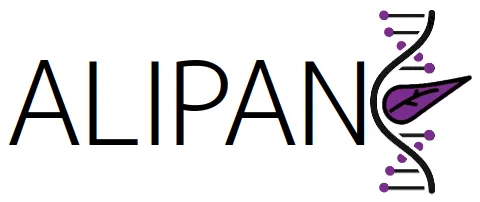The IRYCIS Pancreatic Cancer Biomarkers and Personalized Approach Research group at ALIPANC will be led by Dr. Julie Earl, PI of the Biomarkers and Personalized Approach to Cancer Group (BIOPAC), a consolidated group in Area 3 of IRYCIS.
The main lines of research of the group include cancer genetics and diagnostic and predictive tumor biomarkers in pancreatic cancer, as well as response to treatments, using liquid biopsy and primary tumor models, as well as the identification of possible new therapeutic targets for intervention, using in vitro experimental models (2D and 3D) and in vivo experimental models.
The following is a list of the group’s main study contexts:
- Genetic predisposition to pancreatic cancer:
Coordination of a national registry of familial pancreatic cancer and biobank of samples and clinical data of PDAC cases, high-risk individuals and individuals with non-PDAC pancreatic lesions (IPMN, cysts, pNET, pancreatitis, etc.). Profiling of somatic and germline alterations by next-generation sequencing, as well as epigenetic alterations, including non-coding RNA. - The development of tumor biomarkers for diagnosis, prognosis and response to treatment in liquid biopsy:
Identification and validation of biomarkers for early detection and patient management strategies, particularly for progression and response to treatment, such as circulating free DNA, non-coding RNA, circulating tumor cells and circulating soluble factors. Radiomics and other imaging techniques combined with molecular markers also contribute to the precision and personalization of medicine in gastrointestinal tumors and our group includes the use and analysis of these approaches…. - The development of in vitro and in vivo tumor models and new treatment strategies for PDAC:
Development and characterization of organoid digestive tumor models from primary tumors and PDX. The effects of low level ultrasound (LIUS) as an adjunctive treatment strategy in PDAC. Drug repositioning in the treatment and adjuvant therapy of pancreatic cancer.
Resources and data generated.
Spanish National Registry of Familial Pancreatic Cancer:
The registry currently includes 120 families with more than 250 people currently registered. There is a collection of clinical samples and data from all these individuals and clinical data.
Collection of sporadic pancreatic cancer:
Currently, the registry includes more than 120 diagnosed PDAC cases and individuals with non-PDAC pancreatic lesions (IPMN, cysts, pNET, pancreatitis, etc.), with corresponding diagnostic and follow-up samples and clinical data.
Biobanking and biomodelling in pancreatic cancer: Platform biobanks and biomodels – Units of the ISCIII Platforms to support R+D+i in Biomedicine and Health Sciences. ISCIII (PT23/00098). PDX and organoid models of gastrointestinal tumors.


